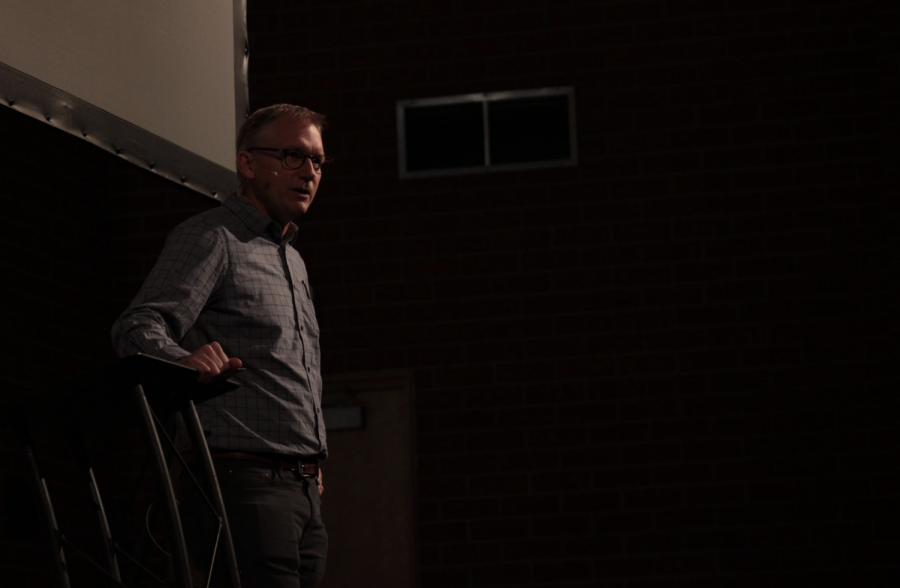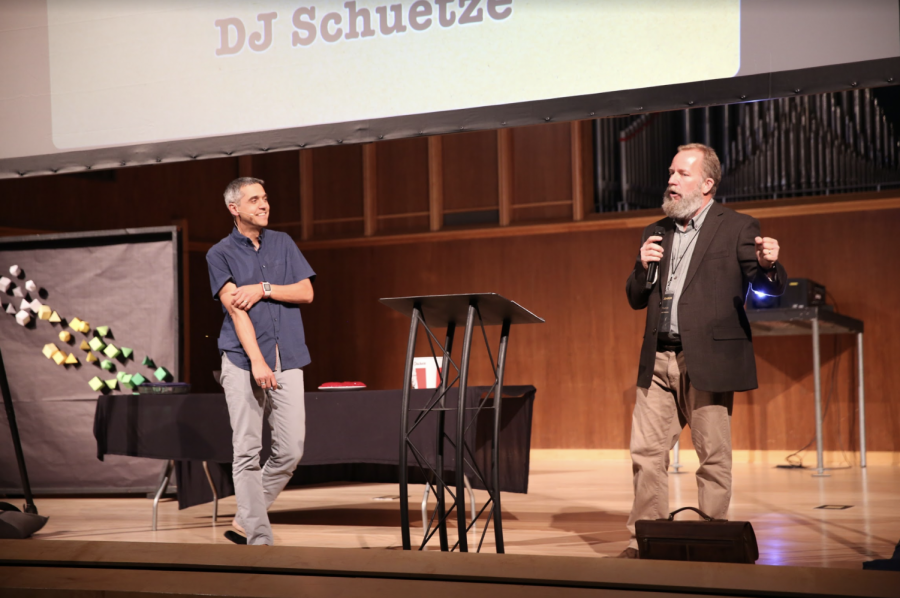After speaking briefly on Matthew 4:17 during the first main session on Wednesday morning, biblical and theological studies professor Jon Lunde expanded upon the passage during his afternoon breakout sessions, entitled “A Disappearing Word.”
The word Lunde refers to in the session title is “Repent,” when Jesus said “Repent, for the kingdom of God has drawn near.”
“When Jesus said ‘repent,’ he was saying, ‘change your mind in relation to who I am,’” Lunde said. “Why does repentance seem to be disappearing from our language?”
MYTHS ABOUT SIN
First, Lunde offered a redefinition of sin. Sin is any thought, motive, or action that is out of alignment with the character and design of the one true God. He pointed out that modern culture often defines sin as anything that is unloving–which then puts how we define “love” up for grabs, rather than running towards the biblical definition of love.
If we define sin in direct correlation to love, this lets us accept, among other things, modern culture’s obsession with unbiblical lust and sexuality because we can justify it as an expression of love. It also hinders our ability to forgive others because we lose sight of how God forgives true sin.
Second, Lunde said the modern concept of sin is often confined to oppression. He made it abundantly clear that he sees current society’s obsession with casting off oppression as an overall “really, really good thing” that is causing major positive change in the world, but pointed out that it can warp our perception of sin in victims of oppression.
Nobody is morally innocent, and we must not lose sight of our personal moral guilt when wrongs are done to us, as we will all one day have to answer for our sins before God.
Thirdly, Lunde says we misunderstand Godly covenants. He says we lose sight of obedience because of of the saving grace offered to all believers through the covenant we live under. As Paul points out at several points throughout the epistles that while we are justified by faith, we lose sight of the value of obedience to God and, therefore, the value of repentance.
He pointed out that humanity’s righteousness ultimately comes from obedience, in particular the obedience of Jesus Christ.
However, Lunde also says misunderstanding of covenants can swing to much the other leads to legalism. Our role in the new covenant, he says, is to accept the grace given to us and honor that grace with obedience, as opposed to trying to earn that grace through obedience.
THE IMPORTANCE OF REPENTANCE
Lunde also illustrates a cycle in the lives of many Christians of moral failure, contrition, confession and repentance until our next moral failure. Often, Lunde says, we ignore the repentance part and just focus on the contrition and confession aspects after we sin.
Lunde then returned to the biblical definition of sin.
“The more we understand who God is, the more we conform to his character and the more we begin to understand exactly what sin is,” Lunde said. “The more we understand what sin is, the more we understand how important it is to repent.”
Lunde beautifully fleshed out and illustrated each of his points with several scripture references. In doing so, he highlighted a key point of tension that many struggle with—how to value repentance correctly without being overly cynical of our salvation or embracing legalism. We must understand where we fall short, but rather than getting caught up in our shortcomings, we must embrace the grace Christ freely gives so that our dirty rags of self-righteousness become beautiful fruits of the spirit, as Lunde put it. In many ways, this delicate balance parallels the current state kingdom of God, which has already come to earth but is not yet fully realized.
“Our transformation does not wait for the kingdom to come,” Lunde said. “It happens now, in the inaugurated kingdom.”











